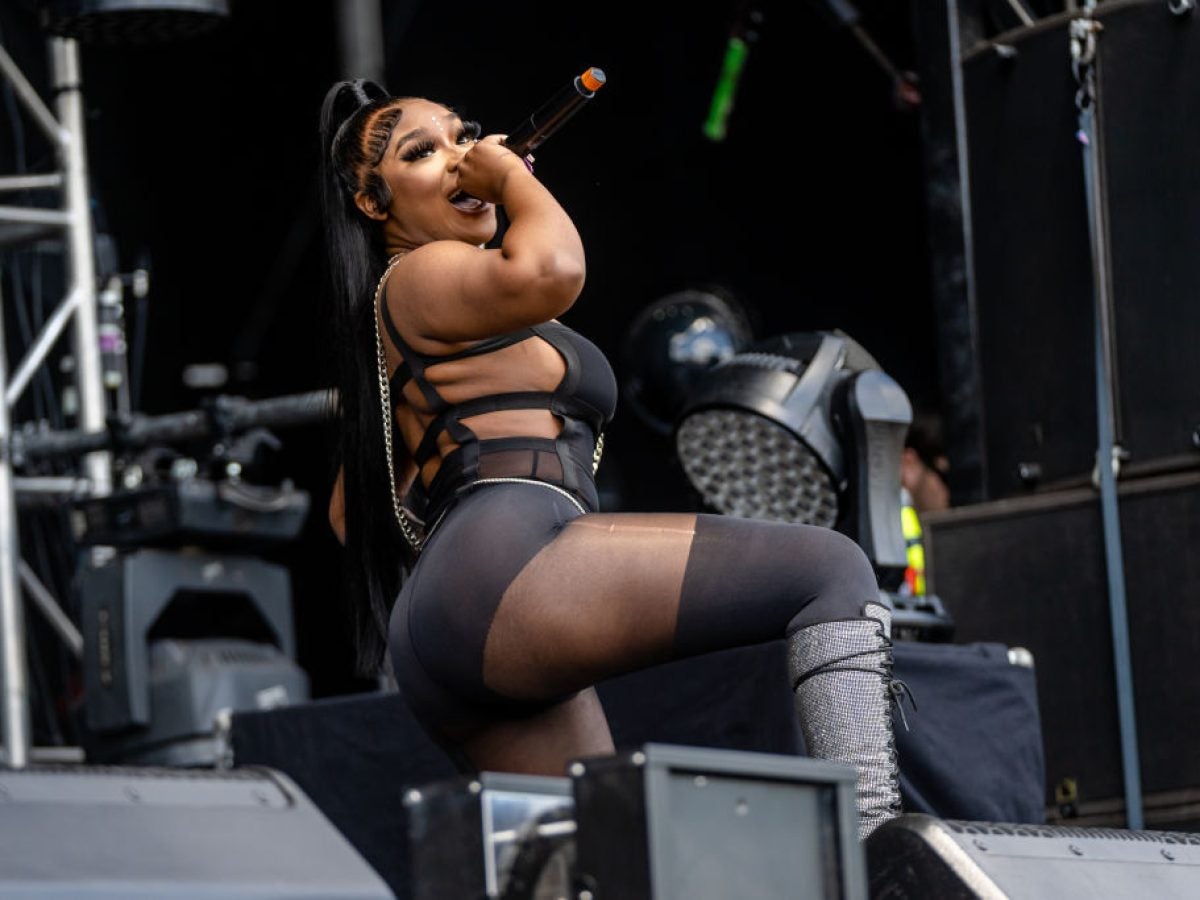
This week on Beyoncé’s internet, rapper Erica Banks of “Buss It” challenge fame is trending because she shared a list of prerequisites friends need to accompany her to the club. She shared this list on her Instagram Stories with her close friends, but a not-so-close friend leaked the video.
“If a b—h ain’t a certain type of look, if she don’t look how I want her to look, physically, I don’t want her to come,” Banks said in the video. “Because the look of everything is so important to me. Like, if she ain’t thick enough? Nope. Hair not did good enough? Nope. Can’t dress? Nope. Skinny? Nope.”
As you can imagine, the main part of her list that is ruffling many people’s feathers is the body shaming, considering she herself has supposedly had work done to her body.
Banks continued saying in her stories, “I just want a certain type of look. She could be the sweetest girl I ever met in my life, but if she don’t look the part, I don’t want her to come,” she said. “That’s just not the vibe I’m on. Now she can come to the cookout, she can come to the listening party, but the club? I feel like b—hes gotta look a certain way to come.”
Of course, the rapper received backlash from social media users with some referring to her as a “mean girl” and saying she was discriminating against other women. Banks “kept that same energy” when she responded to the backlash.
“Everybody’s entitled to their own opinion & I’ve never been one to convince people of liking mine,” she tweeted. “My preference of who I club with when it comes to my brand has nothing to do with y’all. Y’all never liked me anyway so why would I care about what y’all think about anything I say?”
She is right in the sense that everyone is entitled to their own opinion, but there are still a couple of things to unpack here. The two things I’ll focus on are whether it makes sense to exclude our friends based on how they look and the notorious topic of body shaming. Let’s start with the former.
To not be hypocrites, we should all be honest and admit we have innate biases. We are often attracted to people who look or behave a certain way because that’s how humans are wired. There’s actually a scientific term for this called the “similar-to-me-effect,” which is a cognitive bias that says we tend to gravitate towards people who look and act like us. This isn’t inherently a bad thing. However, some biases we have can be harmful to others. And excluding “friends” based on their body type and aesthetic feels harmful. Why? Because genuine friendships should be safe spaces where people can come as they are and not be excluded or told they don’t meet the cut for doing so.
To me, friendships are about embracing people for who they are, creating safe spaces for vulnerability, and helping one another grow. To exclude someone based on things you can help them with like hair, clothing, or makeup feels unfair, and to be frank, shallow. To bar them based on something they may not be able to control–-like being skinny–-does indeed feel discriminatory, bringing me to my second point about body shaming.
I saw a post when I was scrolling through Instagram recently about a woman who transformed her body in the gym and went from being slim to thick. The caption honed in on the importance of not skinny shaming women, because it can be just as harmful as fat shaming. In the Black community, many of us have this obsession with being “thick” and every other body type is often seen as undesirable. As a slim Black girl, I couldn’t hear the end of me “needing to eat more,” or not having enough booty all throughout my teenage and adult years. I heard it from Black men and women only, family members too. I remember one offering me a serum that would supposedly help my butt grow. For a long time, it made me feel inadequate and like being thick was the only way to be attractive.
When people make statements like the ones Banks took to her platform to share, they don’t think about how harmful this messaging can be to women struggling with their self-image. All body types can be sexy, beautiful, and attractive–it’s all just a matter of personal preference.
As Black women, we shouldn’t be perpetuating “preferences” often shaped by mass media that make other women feel excluded or unattractive. While it isn’t Banks’ job to care about or help nourish the self-esteem of other women, being kind goes a long way. As the old-age saying goes, if you don’t have anything kind to say…I’m sure you know the rest. Maybe keep it to yourself, sis.